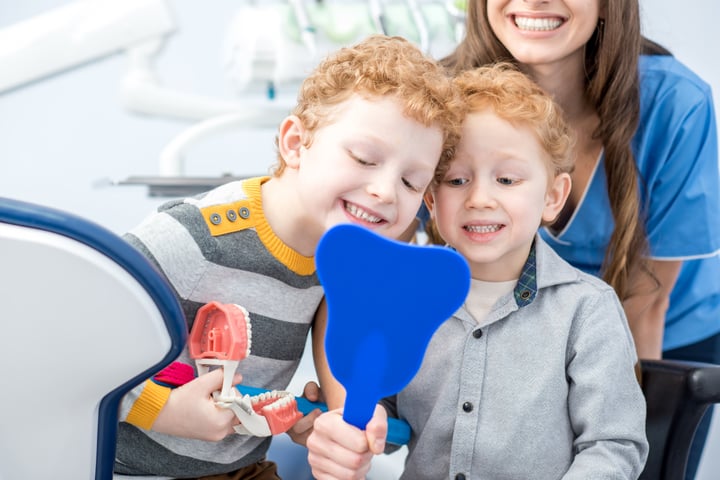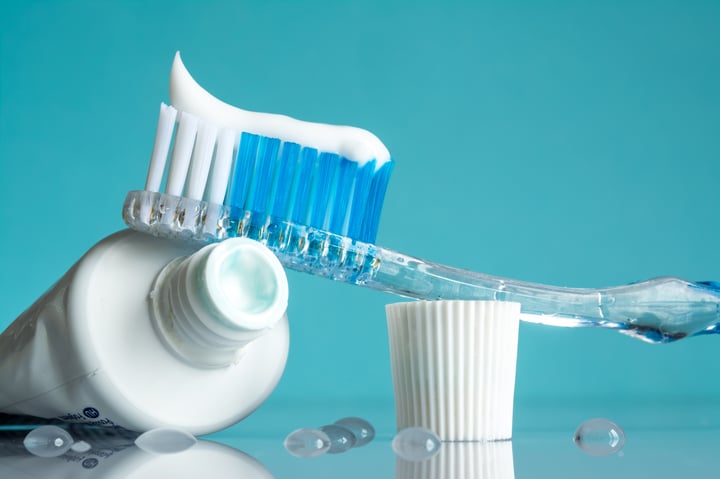By Andrew Hickey on Apr 16, 2024 @ 10:07 AM
Maintaining good oral hygiene is crucial for everyone, but it is particularly essential for individuals with autism spectrum disorder (ASD). People with ASD may experience difficulties with sensory issues, motor skills, or anxiety that can make brushing and flossing challenging. However, with the right approach and support, it is possible to establish a consistent oral hygiene routine that can improve dental health and overall well-being.
Here we will explore helpful tips and strategies that caregivers and healthcare providers can use to promote good oral hygiene practices in individuals with ASD.
Key Takeaways:
- Establish a daily oral hygiene routine that is consistent and predictable.
- Use visual aids to demonstrate proper brushing and flossing techniques.
- Add fun to the routine by incorporating games and rewards.
- Choose the right toothbrush and toothpaste that cater to specific needs and preferences.
- Visit the dentist regularly to prevent dental problems and maintain healthy teeth and gums.

Establish a routine.
A daily oral hygiene routine is essential for individuals with Autism to ensure good dental health. Regular brushing and flossing can be challenging for people with ASD due to sensory issues, motor difficulties, or anxiety. Therefore, it is essential to implement a structured routine that is consistent and predictable. Here are some helpful tips you can use to make the routine easier for people with autism:
- Use a timer to keep track of how much time is left.
- Give verbal praise or rewards after every step.
- Remember that each person learns at their own pace.
- After mastering a manual toothbrush, you can try an electric toothbrush.

Use visual aids.
Individuals with ASD often have difficulty with communication and benefit from visual aids to better understand and follow instructions. Regarding oral hygiene, using pictures or videos can effectively demonstrate proper brushing and flossing techniques for individuals with ASD. This approach can improve overall health, well-being, and quality of life.

Make it fun.
Adding a fun element to the routine can make brushing and flossing more enjoyable. Incorporating games and rewards can help motivate individuals with ASD to maintain a consistent routine.
- If you are using a timer, make it a game. See who can finish brushing every tooth before the time runs out.
- Create a point system for flossing and brushing.
- You can provide small rewards like a healthy snack or a sticker when you reach specific points.
Adding these small rewards and games to the oral care routine can be enjoyable and help motivate individuals to maintain good oral hygiene habits.

Choose the right toothbrush and toothpaste.
Individuals with Autism may have sensory sensitivities that make brushing teeth uncomfortable or overwhelming. Luckily, there are a range of toothbrush options that cater to specific needs. For instance, some may prefer a toothbrush with soft bristles, as they may feel less abrasive on the gums. Others may find a toothbrush with a smaller head easier to handle. By giving autistic people the autonomy to choose the most comfortable toothbrush, they are more likely to engage in regular oral hygiene practices and maintain good dental health.
When it comes to toothpaste, finding the right one can take some trial and error. For example, mint toothpaste can cause a bitter or burning sensation in sensitive individuals. Children with ASD can choose from toothpaste flavors like bubblegum or berry and colorful toothpaste. Some individuals are overwhelmed by both the flavor and the foaming of the toothpaste. So, they may benefit from unflavored or non-foaming toothpaste made with herbs or powder instead. Similarly, children with difficulty swallowing may need to start with non-fluoridated toothpaste.

Visit the dentist regularly.
Dental visits can be overwhelming and stressful for some individuals due to sensory sensitivities and behavioral challenges often associated with Autism. However, with the help of specialized healthcare providers, dental care can be made more comfortable and less anxiety-provoking.
Regular dental checkups can help identify and address issues before they become more serious, including dental caries, gum disease, and other dental problems. Dental professionals can also advise on oral hygiene techniques and nutritional habits to help maintain healthy teeth and gums.
In conclusion, maintaining good oral hygiene is crucial for individuals with autism spectrum disorder (ASD) to prevent dental problems. Establishing a daily routine, using visual aids, making it fun, choosing the right toothbrush and toothpaste, and visiting the dentist regularly can help individuals with ASD maintain good dental health. By implementing these tips, caregivers and healthcare providers can better support individuals with ASD in their oral hygiene practices, ultimately improving their overall health and well-being.
Want to have Solstice benefits?
Call our sales team at 877.760.2247 or email Sales@SolsticeBenefits.com
Already have Solstice benefits?
See your plan details by going to https://www.mysmile365.com/ or calling us at 1.877.760.2247.





comments